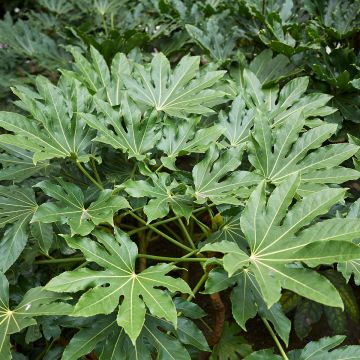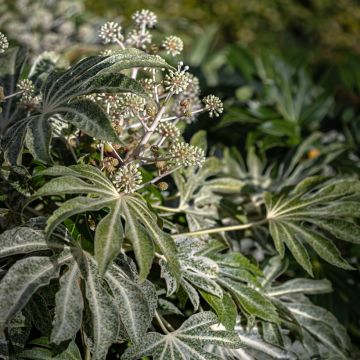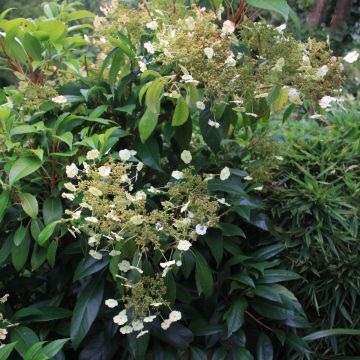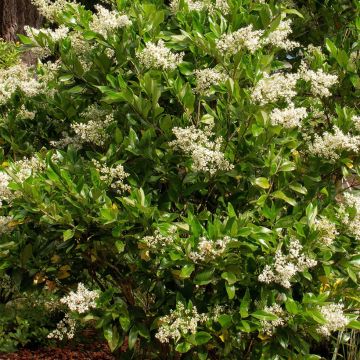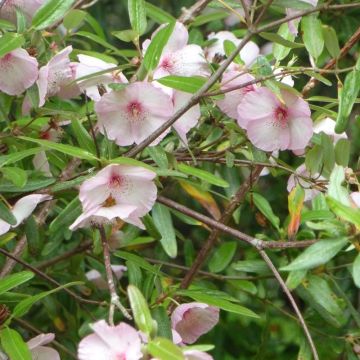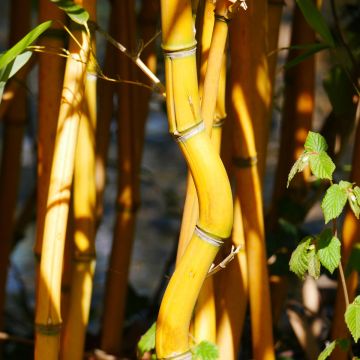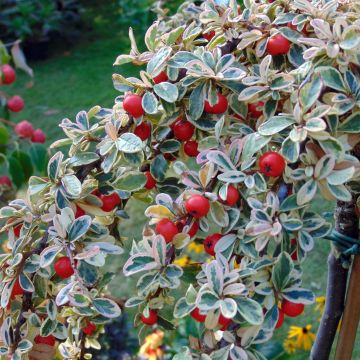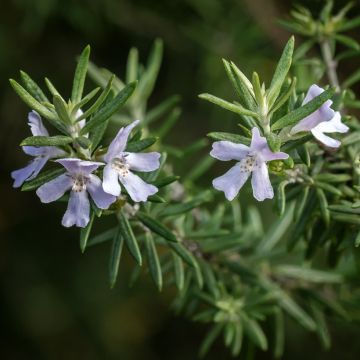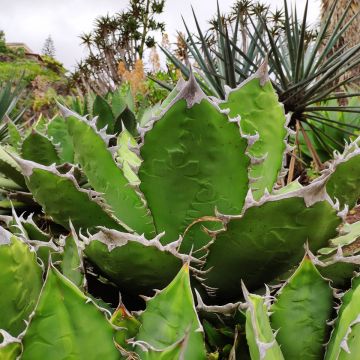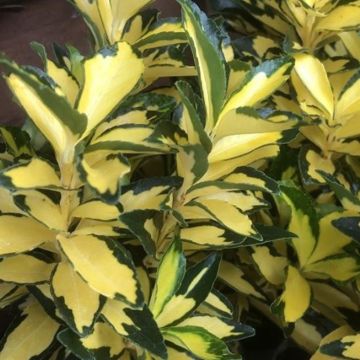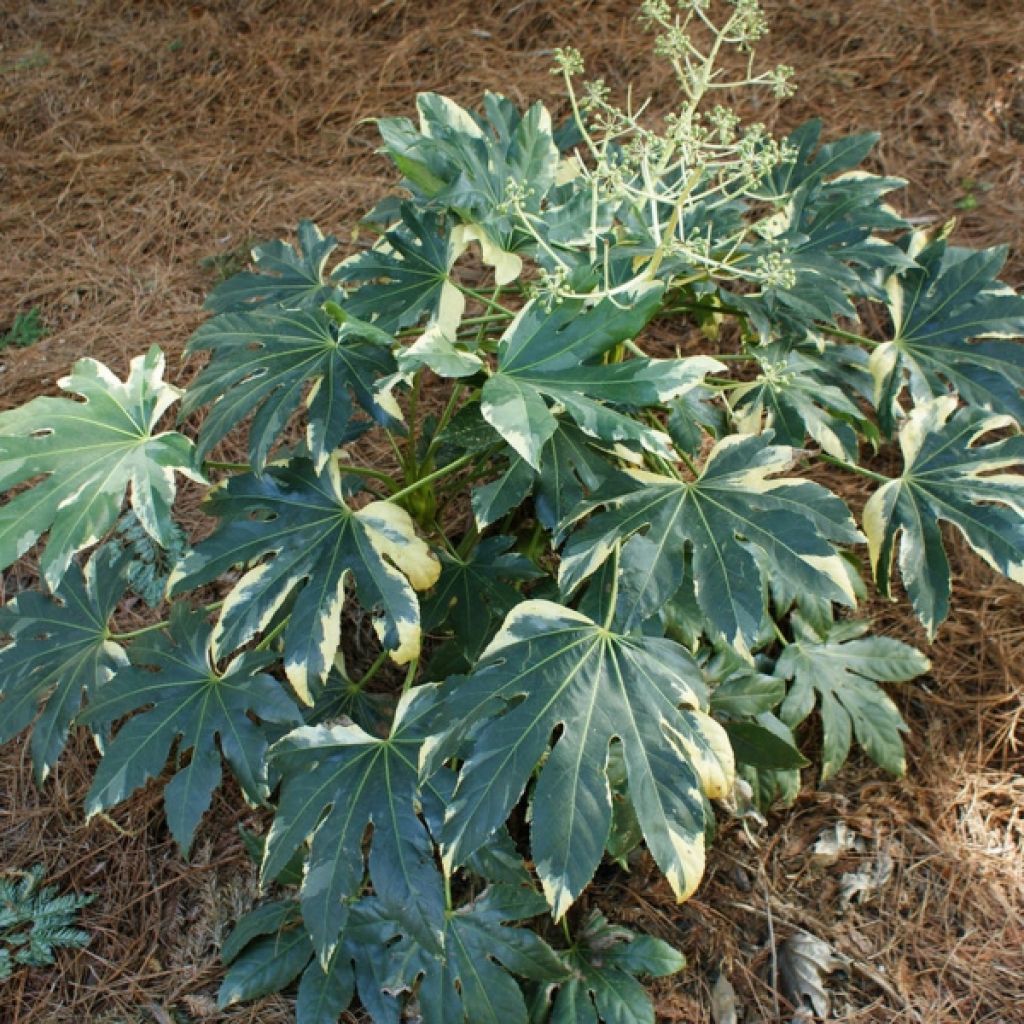

Fatsia japonica Variegata
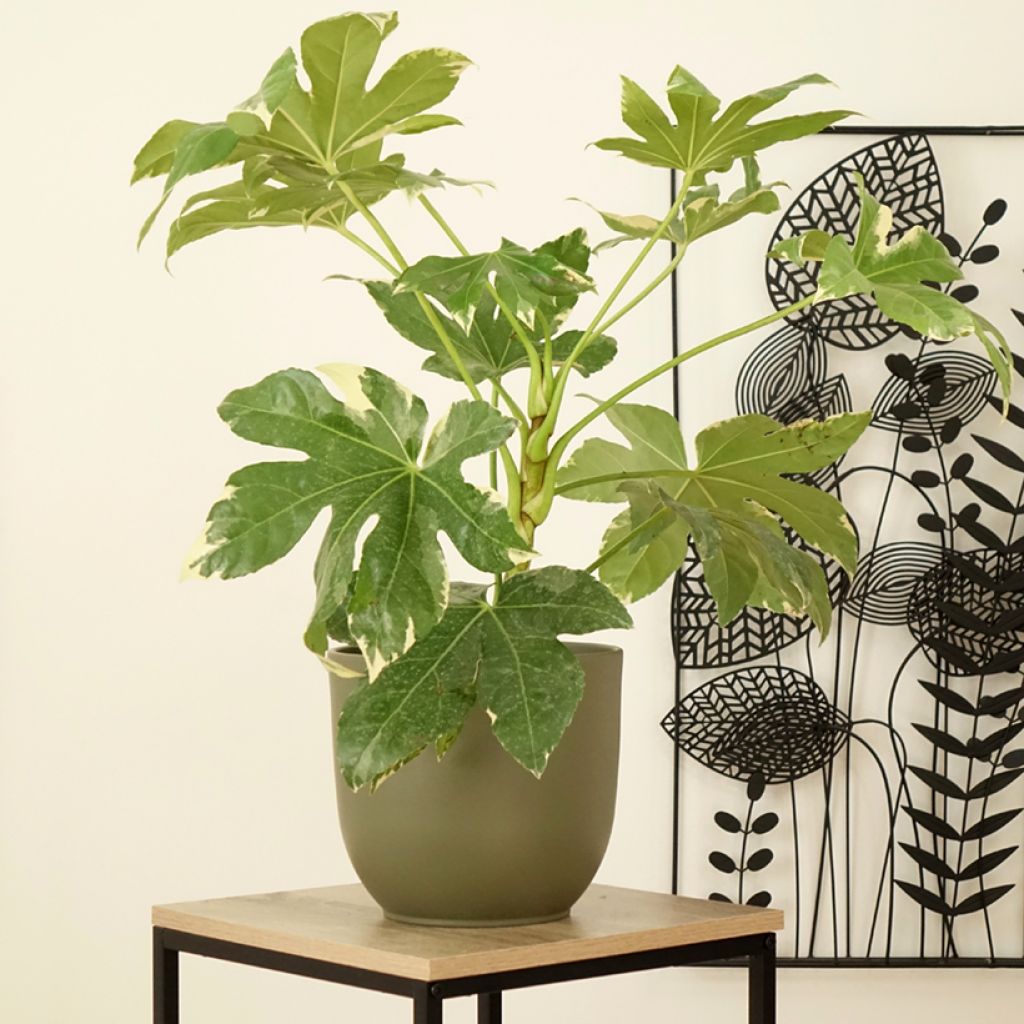

Fatsia japonica Variegata
Fatsia japonica Variegata
Fatsia japonica Variegata
Paperplant, False Aralia, Japanese aralia, Caster Oil Plant
Well grown, delighted
Sawi, 30/09/2025
Special offer!
Receive a €20 voucher for any order over €90 (excluding delivery costs, credit notes, and plastic-free options)!
1- Add your favorite plants to your cart.
2- Once you have reached €90, confirm your order (you can even choose the delivery date!).
3- As soon as your order is shipped, you will receive an email containing your voucher code, valid for 3 months (90 days).
Your voucher is unique and can only be used once, for any order with a minimum value of €20, excluding delivery costs.
Can be combined with other current offers, non-divisible and non-refundable.
Home or relay delivery (depending on size and destination)
Schedule delivery date,
and select date in basket
This plant carries a 24 months recovery warranty
More information
We guarantee the quality of our plants for a full growing cycle, and will replace at our expense any plant that fails to recover under normal climatic and planting conditions.


Would this plant suit my garden?
Set up your Plantfit profile →
Description
The Fatsia japonica Variegata is a selection of variegated Japanese Aralia that possesses all the qualities of the wild plant and more, with its elegantly palmate foliage, variegated with bright green and white. Its creamy-white globular flowers bloom in large numbers, usually in late summer, grouped in clusters that somewhat resemble ivy inflorescences. They are also nectar-rich and give rise to small, decorative black fruits, but they are not edible. This plant, much more cold-resistant than it seems, is a wonder for shaded or semi-shaded areas of the garden. It thrives in moist, humus-rich soil without excessive limestone.
The Fatsia japonica Variegata (syn. Aralia cordata), also known as Aralia or Japanese Fatsia, is a plant of the araliaceae family. Its wild ancestor is native to Southeast Asia, particularly Japan, Korea, and China. It is a giant herbaceous perennial, not to be confused with true deciduous Aralias with thorny stems. The false aralia is composed of long petioles bearing very large leaves, giving it a rounded and sprawling habit as well as a lush tropical appearance. Its growth is rather slow. Having initially gained popularity as a houseplant, the Japanese Aralia has become, through inspired landscapers, an excellent garden plant, hardy and valuable for the design of shaded urban spaces. Cultivated in pots, it will not exceed 1.50 m (4 ft 11 in) in all directions, while it can easily reach 2 m (6 ft 7 in) when planted in the ground.
The 'Variegata' cultivar is a spontaneous mutation of this species. It is mainly distinguished by its foliage randomly streaked with creamy-white along the edges. Its beautiful palmate leaves, divided into 7 to 9 lobes, measure 15 to 30 cm (5.9 to 11.8 in) in diameter, they are evergreen and are borne on a branched false trunk giving it a very structured habit and exotic look. Tiny flowers appear from July to September, grouped in clusters of small creamy-white pompoms. Later, they transform into equally decorative black pearls, highly appreciated by birds.
Fatsia japonica Variegata thrives in partial shade, in very fresh, light, and preferably neutral to acidic soils. Hardy down to -15°C (5 °F), its foliage may suffer damage from snow or winter winds; therefore, it should be planted in a sheltered spot protected from cold and dry winds. In the garden or on the terrace, this Fatsia immediately creates an atmosphere of lush and exotic undergrowth, while brightening up shady areas. Plant it to the south or west, against a wall or in a shaded bed, alongside luxuriant foliage plants such as rodgersias, bamboos, Chinese fan palms, or Gunnera. Ferns, hostas, and creeping bugles can also be planted at its base. Small gardens or urban patios will be transformed by its presence, especially in poorly sunlit areas, enclosed between walls or sometimes unattractive partitions.
Report an error about the product description
Fatsia japonica Variegata in pictures
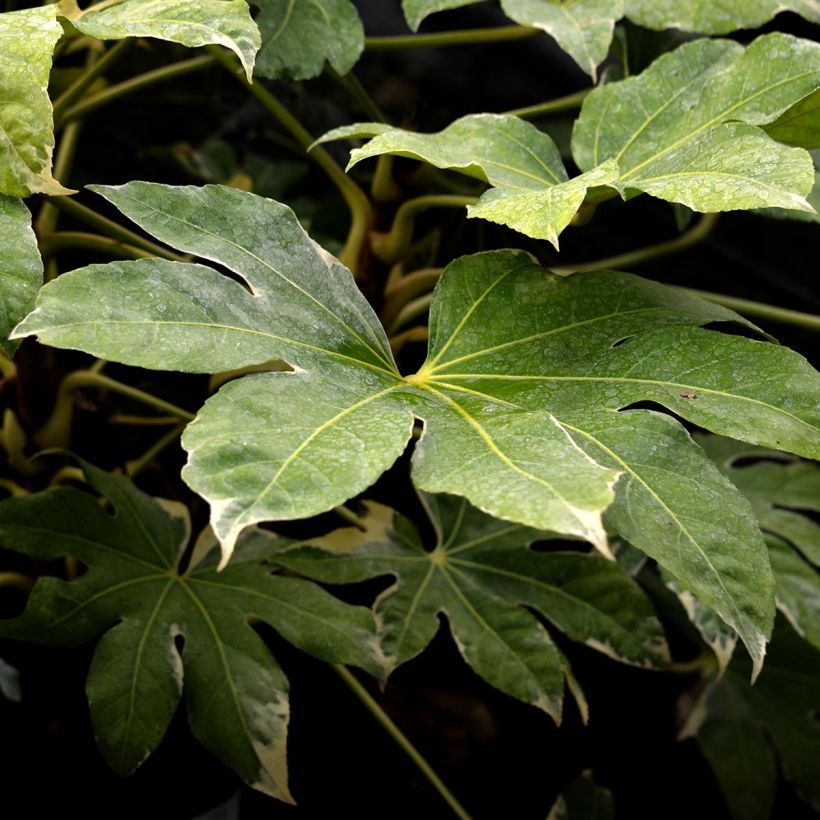

Plant habit
Flowering
Foliage
Botanical data
Fatsia
japonica
Variegata
Araliaceae
Paperplant, False Aralia, Japanese aralia, Caster Oil Plant
Cultivar or hybrid
Other Fatsia
View all →Planting and care
The Fatsia japonica Variegata prefers slightly acidic soils, so you need to enrich your planting hole with leaf compost. Lighten the soil with a bit of sand to improve drainage (beneficial in winter). Also, be careful to plant it in a sheltered spot away from the wind and preferably in partial shade. Water well in summer to maintain some moisture at the base of the plant. In winter, do the opposite and make sure it's kept dry. It's wise to protect it with a winter cover during this period. When the leaves of your false aralia turn yellow in winter, it's often due to low temperatures; in summer, it's due to drought, so mist the plant with a bit of water. Prune any unsightly branches in spring. In autumn, you can remove the clusters of fruits as soon as they appear, as this will allow the leaves to grow larger the following year.
Planting period
Intended location
Care
-
, onOrder confirmed
Reply from on Promesse de fleurs
Similar products
Haven't found what you were looking for?
Hardiness is the lowest winter temperature a plant can endure without suffering serious damage or even dying. However, hardiness is affected by location (a sheltered area, such as a patio), protection (winter cover) and soil type (hardiness is improved by well-drained soil).

Photo Sharing Terms & Conditions
In order to encourage gardeners to interact and share their experiences, Promesse de fleurs offers various media enabling content to be uploaded onto its Site - in particular via the ‘Photo sharing’ module.
The User agrees to refrain from:
- Posting any content that is illegal, prejudicial, insulting, racist, inciteful to hatred, revisionist, contrary to public decency, that infringes on privacy or on the privacy rights of third parties, in particular the publicity rights of persons and goods, intellectual property rights, or the right to privacy.
- Submitting content on behalf of a third party;
- Impersonate the identity of a third party and/or publish any personal information about a third party;
In general, the User undertakes to refrain from any unethical behaviour.
All Content (in particular text, comments, files, images, photos, videos, creative works, etc.), which may be subject to property or intellectual property rights, image or other private rights, shall remain the property of the User, subject to the limited rights granted by the terms of the licence granted by Promesse de fleurs as stated below. Users are at liberty to publish or not to publish such Content on the Site, notably via the ‘Photo Sharing’ facility, and accept that this Content shall be made public and freely accessible, notably on the Internet.
Users further acknowledge, undertake to have ,and guarantee that they hold all necessary rights and permissions to publish such material on the Site, in particular with regard to the legislation in force pertaining to any privacy, property, intellectual property, image, or contractual rights, or rights of any other nature. By publishing such Content on the Site, Users acknowledge accepting full liability as publishers of the Content within the meaning of the law, and grant Promesse de fleurs, free of charge, an inclusive, worldwide licence for the said Content for the entire duration of its publication, including all reproduction, representation, up/downloading, displaying, performing, transmission, and storage rights.
Users also grant permission for their name to be linked to the Content and accept that this link may not always be made available.
By engaging in posting material, Users consent to their Content becoming automatically accessible on the Internet, in particular on other sites and/or blogs and/or web pages of the Promesse de fleurs site, including in particular social pages and the Promesse de fleurs catalogue.
Users may secure the removal of entrusted content free of charge by issuing a simple request via our contact form.
The flowering period indicated on our website applies to countries and regions located in USDA zone 8 (France, the United Kingdom, Ireland, the Netherlands, etc.)
It will vary according to where you live:
- In zones 9 to 10 (Italy, Spain, Greece, etc.), flowering will occur about 2 to 4 weeks earlier.
- In zones 6 to 7 (Germany, Poland, Slovenia, and lower mountainous regions), flowering will be delayed by 2 to 3 weeks.
- In zone 5 (Central Europe, Scandinavia), blooming will be delayed by 3 to 5 weeks.
In temperate climates, pruning of spring-flowering shrubs (forsythia, spireas, etc.) should be done just after flowering.
Pruning of summer-flowering shrubs (Indian Lilac, Perovskia, etc.) can be done in winter or spring.
In cold regions as well as with frost-sensitive plants, avoid pruning too early when severe frosts may still occur.
The planting period indicated on our website applies to countries and regions located in USDA zone 8 (France, United Kingdom, Ireland, Netherlands).
It will vary according to where you live:
- In Mediterranean zones (Marseille, Madrid, Milan, etc.), autumn and winter are the best planting periods.
- In continental zones (Strasbourg, Munich, Vienna, etc.), delay planting by 2 to 3 weeks in spring and bring it forward by 2 to 4 weeks in autumn.
- In mountainous regions (the Alps, Pyrenees, Carpathians, etc.), it is best to plant in late spring (May-June) or late summer (August-September).
The harvesting period indicated on our website applies to countries and regions in USDA zone 8 (France, England, Ireland, the Netherlands).
In colder areas (Scandinavia, Poland, Austria...) fruit and vegetable harvests are likely to be delayed by 3-4 weeks.
In warmer areas (Italy, Spain, Greece, etc.), harvesting will probably take place earlier, depending on weather conditions.
The sowing periods indicated on our website apply to countries and regions within USDA Zone 8 (France, UK, Ireland, Netherlands).
In colder areas (Scandinavia, Poland, Austria...), delay any outdoor sowing by 3-4 weeks, or sow under glass.
In warmer climes (Italy, Spain, Greece, etc.), bring outdoor sowing forward by a few weeks.






























